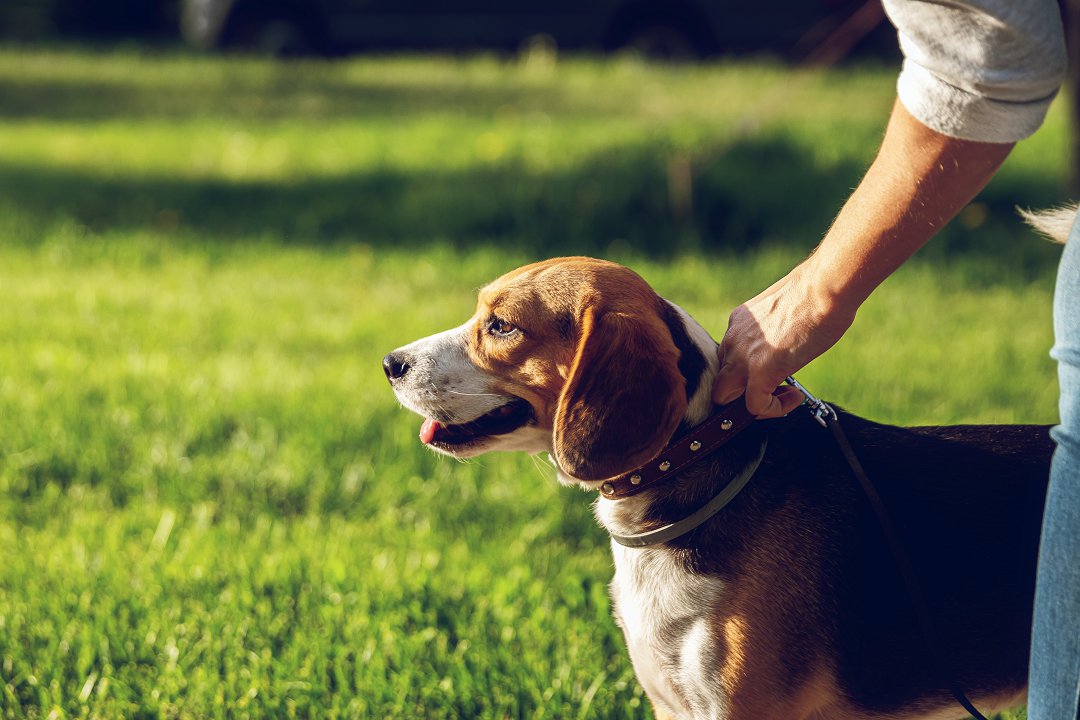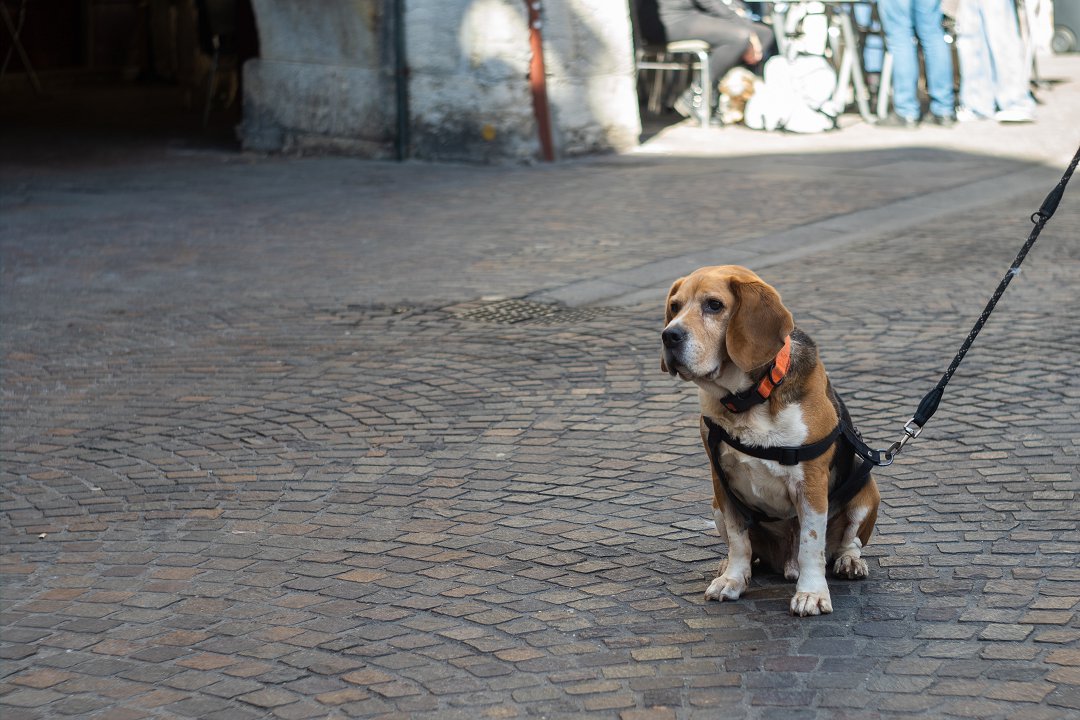Table of Contents
- 1 Introduction: Understanding Aggression in Beagles: Unveiling the Mystery
- 2 Effective Techniques to Manage Aggression in Beagles: A Comprehensive Guide
- 3 Unraveling the Reasons Behind Your Beagle’s Aggression: Insights and Solutions
- 4 FAQs About: Why is my beagle so aggressive
- 4.1 1. How can I determine if my beagle’s aggression is a result of fear or anxiety?
- 4.2 2. What are some common reasons why beagles may show aggression towards other dogs?
- 4.3 3. How can I prevent territorial aggression in my beagle?
- 4.4 4. What should I do if my beagle displays aggression towards humans?
- 4.5 5. How can I address leash aggression in my beagle?
- 4.6 6. Can aggressive behavior in beagles be modified?
Introduction: Understanding Aggression in Beagles: Unveiling the Mystery
Are you wondering, “Why is my beagle so aggressive?” If so, you’re not alone. Many beagle owners find themselves puzzled by their furry friend’s aggressive behavior. In this comprehensive guide, we will delve into the world of beagle aggression, exploring the reasons behind it and providing effective techniques to manage it. Understanding aggression in beagles is crucial for their well-being and the safety of those around them. By unraveling this mystery, we can help you build a stronger bond with your beagle and create a harmonious environment for everyone involved. So, let’s dive in and discover the insights and solutions to your beagle’s aggression.
Effective Techniques to Manage Aggression in Beagles: A Comprehensive Guide
Aggression in beagles can be a concerning behavior for many dog owners. Understanding why your beagle is displaying aggressive behavior is crucial in order to effectively manage and modify it. In this section, we will explore various techniques that can help you address and manage your beagle’s aggression.
1. Positive Reinforcement Training
Positive reinforcement training is a highly effective technique for managing aggression in beagles. By rewarding desired behaviors and ignoring or redirecting unwanted behaviors, you can teach your beagle alternative ways to respond in certain situations. For example, if your beagle becomes aggressive towards other dogs, you can reward calm and friendly behavior when encountering them on walks.
2. Socialization
Socialization plays a vital role in preventing and managing aggression in beagles. Exposing your beagle to various people, animals, and environments from an early age helps them develop positive associations and reduces the likelihood of fear-based aggression. Regularly arranging playdates with other well-behaved dogs and providing positive experiences with new people can greatly contribute to your beagle’s socialization.
3. Consistent and Clear Rules
Establishing consistent and clear rules is essential in managing aggression in beagles. Beagles thrive when they have a structured environment and know what is expected of them. Set boundaries and enforce them consistently, using positive reinforcement when your beagle behaves appropriately. This helps them understand their place in the family hierarchy and reduces the likelihood of dominance-related aggression.
4. Seek Professional Help
If your beagle’s aggression persists despite your best efforts, it may be beneficial to seek professional help. A certified dog trainer or behaviorist can assess your beagle’s behavior, identify the underlying causes of aggression, and provide you with a tailored behavior modification plan. They can also guide you through the training process and offer support along the way.
Remember, managing aggression in beagles requires patience, consistency, and understanding. It is important to address the root causes of aggression and provide your beagle with appropriate outlets for their energy and instincts. By implementing these techniques, you can help your beagle become a well-behaved and happy member of your family.
In the next section, we will delve deeper into the reasons behind your beagle’s aggression, providing you with further insights and solutions to address this behavior.
Unraveling the Reasons Behind Your Beagle’s Aggression: Insights and Solutions
Understanding the root causes of aggression in beagles is crucial for effectively managing their behavior. Beagles, like any other dog breed, can exhibit aggressive behavior for various reasons. By identifying and addressing these underlying factors, you can work towards resolving your beagle’s aggression issues. Here, we will explore some common reasons behind why beagles may display aggression and provide insights and solutions to help you address them.
Lack of Socialization and Training
- Beagles that have not been properly socialized may exhibit aggression towards other dogs or humans. This aggression can stem from fear, anxiety, or a lack of understanding of appropriate behavior.
- Insufficient training can also contribute to aggressive behavior in beagles. Without proper guidance and boundaries, they may resort to aggression as a means of asserting dominance or protecting their resources.
Fear and Anxiety
- Fear aggression is a common form of aggression in beagles. When they feel threatened or scared, they may react aggressively as a defense mechanism.
- Anxiety can also manifest as aggression in beagles. If they are constantly in a state of stress or discomfort, they may display aggressive behavior as a way to cope with their emotions.
Resource Guarding and Territorial Aggression
- Beagles may exhibit aggression when it comes to resource guarding, such as food, toys, or their sleeping area. This behavior is driven by their instinct to protect what they perceive as their possessions.
- Territorial aggression can arise when beagles feel the need to defend their space or territory. This can be directed towards other dogs or even humans who approach their perceived territory.
Leash Aggression and Reactive Aggression
- Beagles that display aggression while on a leash may be experiencing leash aggression. This behavior is often a result of frustration or a feeling of being restrained.
- Reactive aggression occurs when a beagle reacts aggressively towards certain triggers, such as other dogs or loud noises. This aggression is often a response to perceived threats or discomfort.
To address your beagle’s aggression, it is essential to work with a professional dog trainer or behaviorist who specializes in aggression and behavior modification. They can help you develop a customized training plan that focuses on positive reinforcement, desensitization, and counterconditioning techniques. Additionally, providing your beagle with ample socialization opportunities, a consistent routine, and a calm and stable environment can also contribute to reducing aggression.
Remember, each beagle is unique, and the reasons behind their aggression may vary. Patience, consistency, and a proactive approach are key to helping your beagle overcome their aggression and become a well-adjusted and happy companion.
FAQs About: Why is my beagle so aggressive
1. How can I determine if my beagle’s aggression is a result of fear or anxiety?
If your beagle displays aggressive behavior such as growling, snapping, or biting when faced with certain situations or stimuli, it could be a sign of fear or anxiety. Look for signs of fear, such as trembling, cowering, or trying to escape, and consider consulting a professional dog behaviorist or trainer for guidance on how to address these underlying emotions.
2. What are some common reasons why beagles may show aggression towards other dogs?
Beagles, like any other breed, may exhibit aggression towards other dogs due to various reasons. It could be a result of fear, lack of socialization, resource guarding, or even dominance-related issues. Proper training, positive reinforcement, and gradually introducing your beagle to other dogs in controlled environments can help address and manage this aggression.
3. How can I prevent territorial aggression in my beagle?
Territorial aggression in beagles can be managed through proper socialization and training. Introduce your beagle to new people and animals in a controlled and positive manner, gradually exposing them to different environments and situations. Providing mental and physical stimulation, as well as establishing clear boundaries and rules, can also help prevent territorial aggression.
4. What should I do if my beagle displays aggression towards humans?
If your beagle shows aggression towards humans, it is crucial to prioritize safety. Consult a professional dog behaviorist or trainer who can assess the situation and provide guidance on how to modify this aggressive behavior. Avoid punishing or reinforcing the aggressive behavior, and instead focus on positive reinforcement training techniques to encourage desired behaviors.
5. How can I address leash aggression in my beagle?
Leash aggression in beagles can be managed through desensitization and counterconditioning techniques. Gradually expose your beagle to the presence of other dogs or stimuli that trigger the aggression while maintaining a safe distance. Reward calm behavior and gradually decrease the distance over time. Seek guidance from a professional trainer to ensure you are using the correct techniques.
6. Can aggressive behavior in beagles be modified?
Yes, aggressive behavior in beagles can be modified with the right approach and consistency. It is essential to identify the underlying cause of aggression and address it through positive reinforcement training, behavior modification techniques, and professional guidance if necessary. Patience, consistency, and a calm and assertive approach are key when working towards modifying your beagle’s aggressive behavior.






Leave a Reply